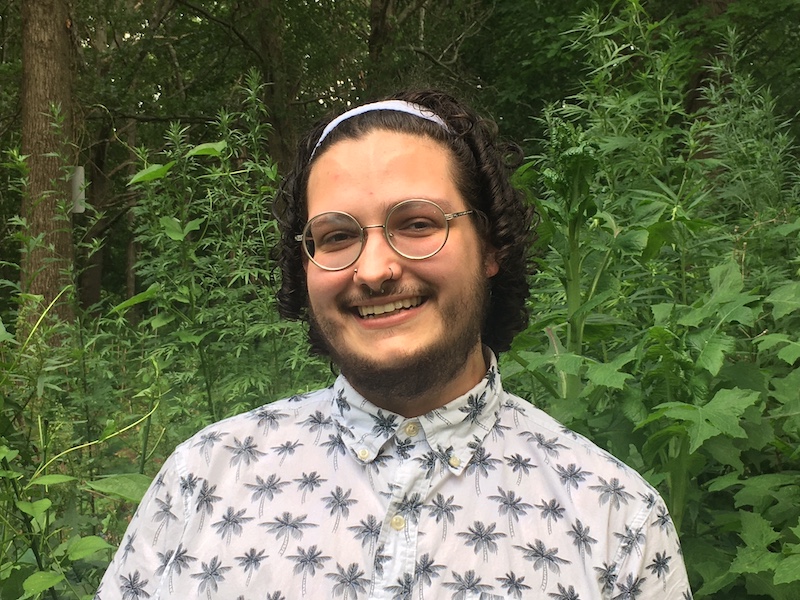Above: Max De Faria, 27th Class Emerson Fellow.
Growing up, I watched my parents struggle to make ends meet every month. There was barely enough, but prior to the Great Recession, we got by. When the 2008 financial crisis brought layoffs, my father was unlucky enough to receive a pink slip. The following years were filled with hungry days and even hungrier nights. The sensation of hunger became an inescapable reminder of what my family was experiencing. Entering the workforce in high school allowed me to support my family, overcoming some of our financial difficulties with this additional income. So when the pandemic hit in March 2020 and furloughs seemed inevitable, the dreaded rush of anxiety returned as my family and I discussed how to respond.
At that same moment, food banks around the country experienced lines of cars with families, many like my own, barely making it through each month, queuing up for hours in order to have a box of food placed in their trunk. These images were a stark reminder of what the next several months and years will look like as families and individuals suffer at the hands of an inequitable food system. However, these news stories did little to actually fill people’s stomachs. When I learned that my field placement was with the California Association of Food Banks (CAFB), it was thus imperative to me that my research was actionable and purposeful—the purpose being to feed people.
My research examined how COVID-19 impacted California’s emergency food system throughout 2020, particularly in terms of food procurement, distribution practices, shifts in demand, and access to volunteers. While these areas may seem unrelated for readers unfamiliar with food banks, they intersect to crucially influence food banks’ daily operations. In addition to these logistical concerns, my interviews with food bank staff members revealed the overarching effects of the interplay between the emergency food system and government policy. Through these semi-structured interviews, I learned one of the greatest obstacles facing the emergency food system was the overwhelming impacts of inconsistent government responses. During times when food banks needed the greatest support, the federal government failed to take the necessary actions to address the worsening economic situation, forcing more families to choose between their next meal (even with food bank assistance) and a place to shelter in.
My results demonstrated the inherent linkages between various forms of oppression, especially anti-Black racism, with hunger throughout this pandemic. With my goal to be actionable and purposeful in mind, I shared my findings with food banks and policymakers alike. Describing these impacts to food banks allowed staff to learn of innovative logistical practices being used around the state. I also presented my findings to the California State Legislature and Members of Congress in an effort to connect the people in power with firsthand knowledge learned from food banks and their guests. When presenting these results, I explicitly highlighted and addressed the role of racism and classism in creating the high levels of hunger we are currently battling.
Thanks to my placement with CAFB, I now serve as the nutrition policy expert at my policy placement, RESULTS. RESULTS seeks to build the grassroots power to end poverty. To do so, they support committed, everyday people to speak out against poverty and engage with their Members of Congress. Their work prioritizes pushing for strong anti-poverty policies, specifically advocating around tax and housing concerns. Drawing on my lived experiences of hunger and poverty in this role, I author content-focused blog posts for volunteers, covering topics such as the current realities of hunger and the child nutrition reauthorization process. These materials not only allow individuals to educate themselves about the realities of hunger and poverty, but also enable them to speak authoritatively about these issues with policymakers. RESULTS volunteers use this knowledge and their voices to advocate for solutions to the inequities in our world. Each person’s voice matters! RESULTS works to ensure that volunteers have the support and skills necessary to make their voices heard.
The current challenge facing the anti-poverty movement is to build the political will to end hunger and poverty at local and global scales. Joining the Washington, D.C., advocacy world has demonstrated to me the need for intentional inclusion of people with lived experience in policy research, writing, and implementation. At every level, from community-based organizations to national policy dialogues, people with lived experience need to be engaged as collaborators—beyond just storytelling—in every aspect of policy.

